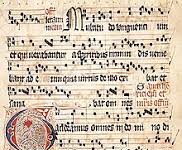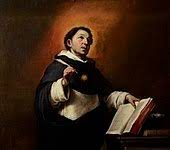In the universal Church, this is the feast of the Ascension, celebrated forty days after the Resurrection, on which we begin the most ancient novena in our tradition, the nine days to the coming of the Holy Spirit at Pentecost. In Canada and a number of other places – for ‘pastoral reasons’, not least that most Catholics who still ‘observe’ would not attend Mass on a ‘weekday’ – the Ascension is moved to the Sunday.
But we may celebrate in our hearts, and, of course, begin that novena. We all need the gifts of the Holy Spirit – counsel and fortitude come vividly to mind – to guide our feet in the these confusing and obscure days. Also, you might peruse today’s inimitable reflection of Father George Rutler on what this feast signifies.
Saint Jeanne d’Arc, the maid of Orleans, the saviour of France in the Hundred Years’ War, is not commemorated in the universal calendar of the Church, but it is a holiday in France, as one of her numerous patrons. A young peasant girl from Domremy in north-eastern France, now named after her with a ‘la Pucelle’ tacked on, Joan, as she is styled en Anglais, as a young teen began receiving visions of the Archangel Michael, Saint Margaret and Saint Catherine of Alexandria – the latter two early virgin martyrs. The heavenly messengers asked her to help Charles VII, the uncrowned French king, to defeat the aggression of the English and drive them out of France.
The travails of her brief life, through which her vivid personality shines forth, have been told numerous times, even by such non-believers as George Bernard Shaw and Mark Twain. How Joan, by her persistence, managed to gain entrance to the king’s court. How Charles had disguised himself, but Joan walked straight up to him, embraced his knees and offered homage. How she disguised herself as a ‘boy’ to gain entrance to the camp, but, once discovered, was adopted as the ensign of the holiness, purity, the very ‘rightness’ of the French cause, leading the beleaguered troops – she never fought, but was once injured by an arrow to the shoulder – to lift the siege of Orleans, then on to victory upon victories, culminating in the coronation of Charles at Reims on July 17, 1429. Bolstered, the French went on in the subsequent two decades to reclaim all of France, with the century-long war ending, as providence would have it, with the decisive Battle of Castillon on the very anniversary of Charles’ coronation, July 17, 1453. Only the port of Calais remained in English hands, until it too fell to the French under the brief reign of Mary Tudor.
In a tragic irony, after Charles had reclaimed his kingship, Joan was captured by Burgundian troops allied with England, and handed over to the enemy. The vacillating king, who owed his throne to her, did little to help. Tried for heresy and witchcraft by a pro-English court of clerics, led by Pierre Cauchon, Joan was unjustly condemned, and burned at the stake on this day in 1431, at nineteen years of age. They kept the flames going until her body was reduced to ashes, which were dumped unceremoniously into the Seine, to ensure there would be no relics. The executioner was quite certain she had been damned.
Yet, her replies during her trial, which make for fascinating and edifying reading, and which were used for her future canonization, evince a pure soul, motivated and inspired only by God. As she is quoted in the universal Catechism:
“Asked if she knew that she was in God’s grace, she replied: ‘If I am not, may it please God to put me in it; if I am, may it please God to keep me there.’
Would that we all could reply with the same trust in God’s goodness, even if the flames are licking at our toes.
Saint Joan was posthumously re-tried under Pope Calixtus III in 1456, and declared innocent, yet her canonization had to wait for five more centuries, being declared definitively in heaven by Pope Benedict XV on May 16, 1920, not for saving France, but, as with all the saints, for who she was, and is, a handmaid of the Lord.
Saint Jeanne, priez pour la France, priez pour nous tous.












